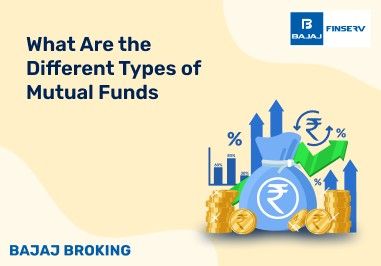When you are looking at funding options for a company or deciding where your money is going in a financial instrument, you might come across shares and debentures. At first glance, both seem like ways to put money into a company. But if you take a closer look, you will notice that they represent two completely different relationships with the business.
Shares make you a part-owner of the company. If you hold equity shares, you own a small piece of the business. Your return depends on how well the company performs. There is no fixed income, and the value of your holding can go up or down depending on the company’s financial health, market perception, and broader economic conditions.
Debentures, on the other hand, are more like a loan you give to the company. You do not become an owner—you become a creditor. The company agrees to pay you interest, usually at a pre-agreed rate, and return your principal amount after a certain period. You may not get voting rights or ownership benefits, but you might receive regular interest payments regardless of the company’s profit or loss.
So, while both involve putting your money into a company, they serve very different purposes and offer different kinds of involvement.
What are Shares?
A share is more than just a financial instrument; it's a direct claim to ownership. Buying a share makes you a part-owner of the company, giving you a say in how it's run through voting rights.
The potential payoff comes in two forms: dividends, which are a share of the profits, or the hope that the stock price goes up, allowing you to sell for a capital gain.
But ownership is a double-edged sword. It comes with significant risk. If the company performs poorly, the value of your share can plummet. All shares are held for you in a Demat account.
Types of Shares
Equity shares
The standard ownership stock. You get to vote, but dividends aren't guaranteed.
Preference shares
You get paid your fixed dividends first, but you usually don't get a vote.
Bonus shares
Free shares given to existing shareholders, paid out from company profits.
Rights shares
A chance for current shareholders to buy more shares at a discount.
Sweat equity shares
Given to employees as a reward for their hard work and contribution.
Cumulative preference shares
If dividends are missed, they pile up and must be paid out later.
Non-cumulative preference shares
A missed dividend is gone for good; it doesn't accumulate.
Participating preference shares
You get your fixed dividend plus a bonus if the company does well.
Non-participating preference shares
You are only entitled to the fixed dividend and nothing more.
What are Debentures?
A debenture is simply a formal IOU from a company. It's a tool for them to borrow money directly from investors instead of going to a bank. This makes you their lender.
Your reward for this loan is fixed, regular interest payments. This provides a predictable income stream, which is a world away from the uncertainty of stock dividends. It is debt, plain and simple.
The trade-off? No ownership. You can't vote on company matters or share in massive profits. The main risk you face is the company not being able to pay back its loan.
Types of Debentures
Convertible debentures
These can be swapped for company shares after a certain period.
Non-convertible debentures (NCDs)
These are pure loans. They can never become company shares.
Secured debentures
Backed by company assets as collateral, making them a safer bet.
Unsecured debentures
Not backed by any assets, making them riskier but with higher interest.
Redeemable debentures
Have a specific end date when the company repays your principal.
Irredeemable debentures
These have no fixed end date and can be held for a very long time.
Perpetual debentures
A type of debenture with no maturity date, paying interest indefinitely.
Callable debentures
The company reserves the right to repay your loan early.
Puttable debentures
The investor has the right to ask for their money back early.
Shares vs Debentures: A Better Investment Choice For You?
Investors must evaluate various factors before choosing a side in the debentures vs. shares debate. The following table sums up the major differences between shares and debentures to offer you a thorough comparative analysis of both investment options:
Parameter
| Debentures
| Shares
|
Nature
| Debt instruments issued by a company to raise funds.
| Equity instruments represent ownership in the company.
|
Status of Holders
| Debenture holders are creditors with a fixed claim on interest payments and principal repayment.
| Shareholders are part-owners of the company with a stake in its profits and losses.
|
Return on Investment
| Returns are predetermined, as debenture holders receive fixed interest.
| Returns are variable, depending on company performance and stock market fluctuations.
|
Type of Return
| Fixed interest and repayment of principal at maturity.
| Dividends and capital appreciation.
|
Voting Rights
| Debenture holders do not have voting rights.
| Shareholders have voting rights and can participate in company decisions.
|
Conversion Option
| Some debentures can be converted into shares after a specific period.
| Shares cannot be converted into debentures.
|
Risk and Reward
| Less risk because of fixed interest payments and being first in the queue to get paid back.
| More risk because the market is unstable, but there's a chance of higher returns.
|
So, which path is better? There's no magic answer here. The right choice boils down to one thing: your personal tolerance for risk versus your desire for growth.
Shares are the way to go if you want to grow quickly and are okay with the risk of ownership. The possible upside is much bigger, but so is the risk.
But if you need a predictable, steady income and want to sleep at night without worrying about market swings, then the relative safety of debentures is probably a better fit.
Conclusion
In the end, it’s all about understanding the deal you're making. Are you signing up to be an owner or a lender? Each role comes with its own set of rules, risks, and potential rewards.
Shares offer a shot at high growth but expose you to the full force of market volatility. Debentures offer steady income but with a capped, limited upside. The risk is just different.
Knowing what you want from your money—aggressive growth or stable income—is the key to choosing the right path for your portfolio. Or, you can use both to build a balanced strategy.















